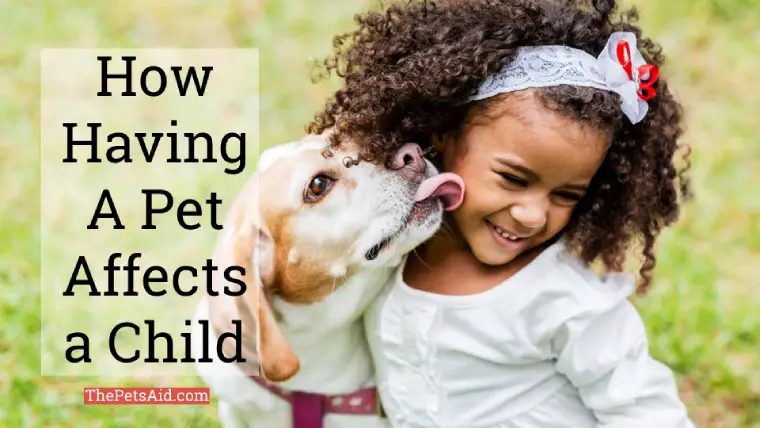How Having a Pet Affects a Child: Many families give pets to children, pets that fill the hearts of the little ones, and homes around the world with joy. But when pets are adopted (it is always better to adopt rather than buy) and finally given a home. Many families do not think ahead of time about the responsibility that comes with having a pet at home and the incredible benefits for children (and also for adults).
How Having a Pet Affects a Child

If you have a pet at home (I mean cats or dogs), it will not only become part of the family but must also be treated as such. Thoughts like “if it gets in the way we give it away” are out of place, because an animal is a living being that you must respect and it is not a toy that runs on batteries if you decide to have a pet it is to always have it in your home. And that children must see it.
They Transmit Values
Animals bring many values to the little ones, values that sometimes people themselves forget to transmit. Benefits of pets for children such as empathy, unconditional love, respect, responsibility, compassion, fidelity are values that children will learn thanks to their pets. But in addition to the values, children can get benefits in their lives thanks to pets, and they are essential for the good upbringing of children.
Reduces Stress in Children
There is an ease of understanding between children and pets that cannot be applied to other relationships. Dogs and cats communicate with people in a special, different, but successful way, and they are also effective for the emotional development of children. Pets can help build children’s self-esteem by reducing stress and feelings of anxiety.
Fewer Asthma and Allergy Risks
Children who grow up with pets from infants have less risk of allergies and asthma. Being exposed to animal hair from birth, the leather develops immunity to these external agents.
Feeling of Security
Pets are not critical, they do not give orders, they do not get angry, and they know how to forgive quickly this, on the other hand, does not happen with many people in the adult world. Animals are always loving (if you are loving to them), and their presence at home helps children feel great security and attachment.
Relieves Separation Anxiety
When pets are at home, they can help alleviate separation anxiety in children when mom or dad is not home. Pets are part of the family; they are once more in the hearts of the little ones and maybe giving them emotional support while waiting for the parents to return home.
Positive Self-image
Unconditional love and the constant company of a faithful dog or cat (or more than one), will make children feel important, something that will help them have better self-esteem and an excellent self-image of themselves.
Improve Relationships With Other People
Children who are emotionally attached to their pets are better able to establish good relationships with other people because they will know how to create emotional bonds.
Reduce Aggressiveness
There are studies that cats and dogs can help hyperactive or overly aggressive children to be calmer. But for this to happen, both the dog and the child must be properly educated so that they behave correctly with others.
But when children play with cats or dogs. It can be a source of calm and relaxation, as well as a style for the body and brain. Playing with animals is a new learning world for young children since it can stimulate the imagination and curiosity of young children.
Family Joy
And of course, pets will bring joy to homes that cannot be achieved otherwise. Pets are part of the family, and just for that, it is a reason for joy and happiness only with their company.

